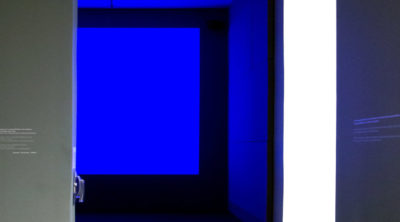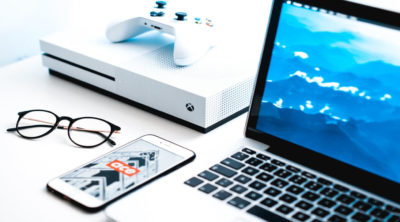When you hear the phrase “blue light,” it is referring to the actual blue light wavelengths we are exposed to every day. While authentic sources of blue light are good for our bodies, excessive exposure from artificial sources has become a topic of conversation due to its potential hazardous effects on our health. Here, we will dive into what you need to know about blue light effects.
Understanding Blue Light
Blue light in its pure and natural form comes from the sun. That big ray of sunshine consists of various colors like red, green and blue. These are the rays of color that are visible to our human eyes.
This natural blue light is mostly responsible for regulating our sleep pattern, also known as our circadian rhythm. Additionally, it can have a profound effect on our mood, attention span and reaction time. And that makes sense because if we aren’t getting proper sleep, we tend to be grumpy, slow and out of tune to what is going on around us, right?
On the other hand, artificial sources of blue light include cell phones, computers, TVs, LED lightbulbs and tablets. These artificial sources are the largest cause for concern.
Negative Blue Light Effects
So, what’s the big deal about artificial blue light? Turns out there are quite a few risk factors.
Computers, tablets, cell phones and TVs are wreaking havoc on our health. Undoubtedly, many of us are connected to one of these electronics for hours each day. The blue light effects due to overuse of these electronics can lead to:
- Blurry vision
- Difficulty focusing
- Headaches
- Neck and back pain
However, one of the biggest concerns regarding blue light is that it could contribute to a higher risk for cancer, diabetes, obesity, heart disease and depression. Interestingly though, the reason for these possible increased health risks stems from one major factor we’ve already discussed: the circadian rhythm. We’ve all heard how important sound sleep is to our overall health, and this just seems to solidify that point.
Mitigating Blue Light Effects
Now, since we are exposed to blue light so much, what do we do to mitigate its effects? Here are a few tips:
- Follow the 20-20-20 rule when working with electronics. In order to give your eyes (and mind) a break, take a 20 second break every 20 minutes to focus on something at least 20 feet away. If necessary, extend your breaks.
- Wear blue-light filtering glasses. These glasses elicit mixed feelings on their effectiveness, but being that you can pick up an inexpensive pair, they may be worth a try.
- Limit blue light while you’re sleeping. If you’re one to sleep with the lights on or even use a nightlight while sleeping, switch to one that emits red light instead.
- Cut down on electronics use before bedtime. Turn off those electronics at least one to two hours before you hit the hay.
- Try a blue-light filtering app. There are several different blue light filtering apps available for download on your electronic devices. Do your research, read the reviews and see which one may be a good choice for you.
Given our increased reliance on technology, it’s almost impossible to completely eliminate blue light from electronic sources. Nonetheless, making an effort to limit our exposure can prove beneficial.
Summary
To close, blue light effects on our bodies can come from a variety of sources. But once you understand the impacts of those sources, you can then begin to mitigate the side effects. Don’t take any chances with your health!

